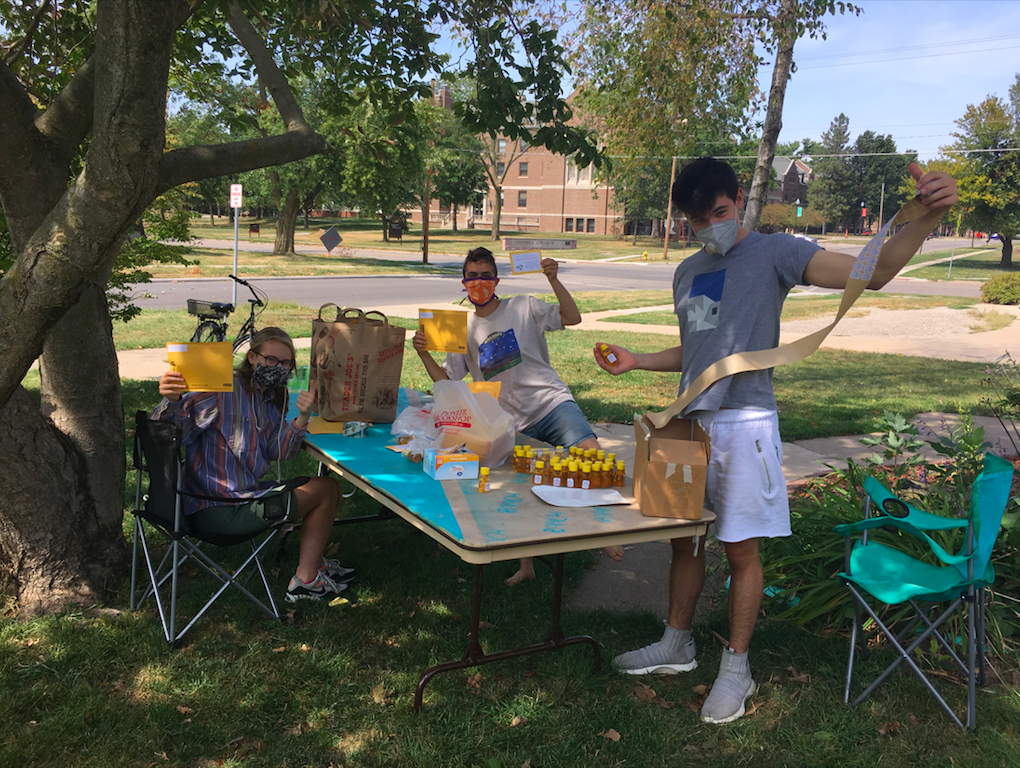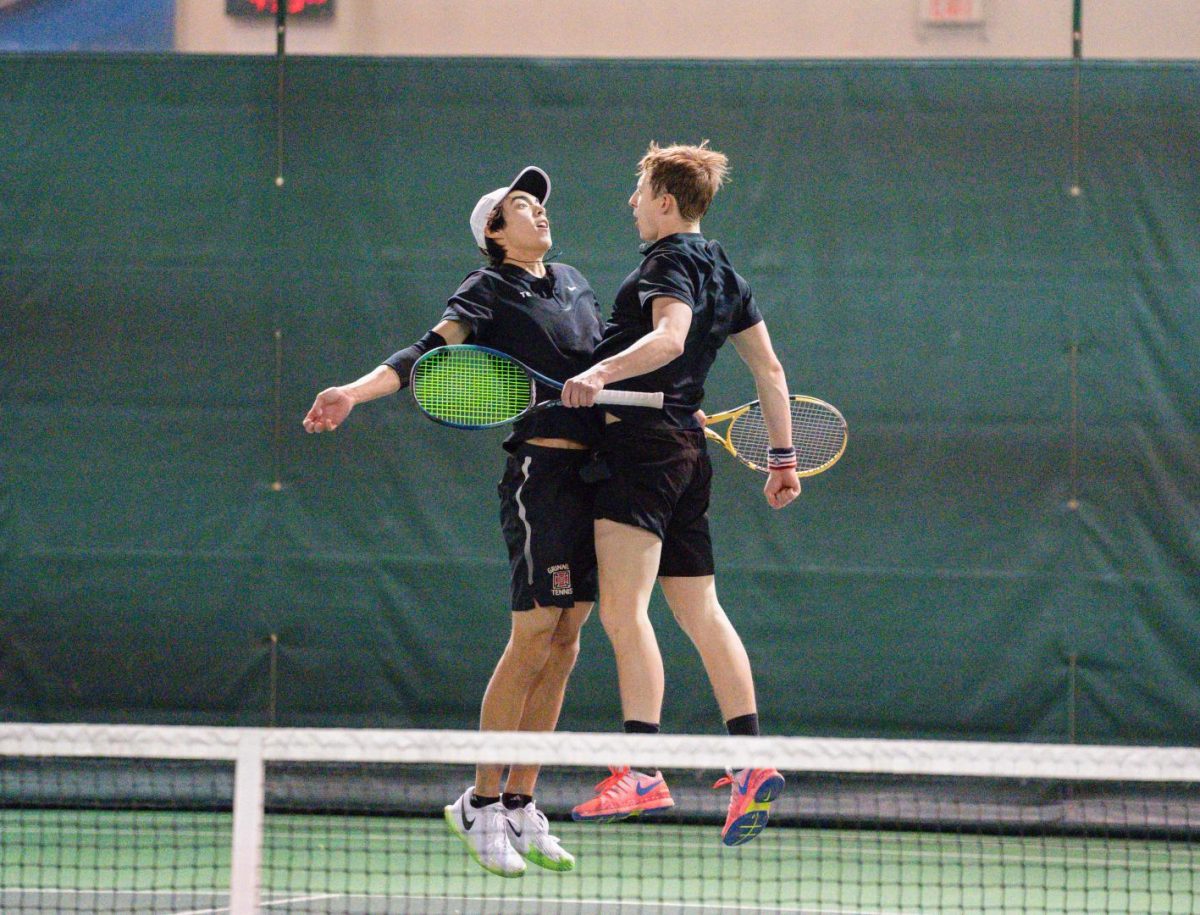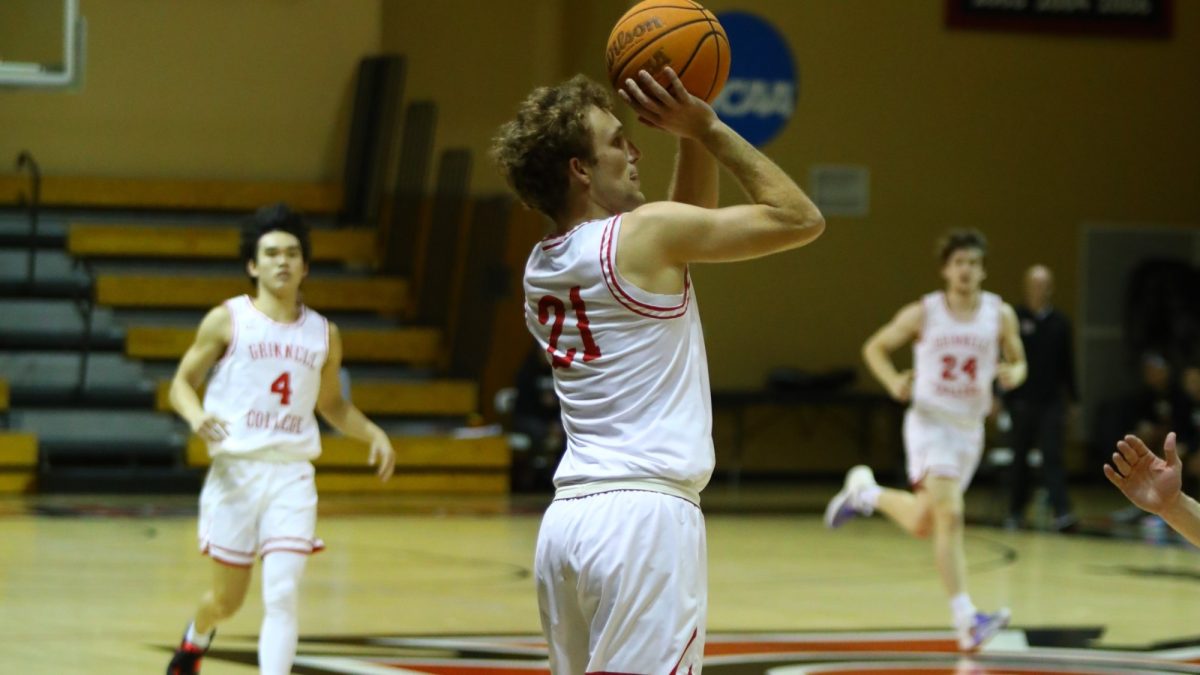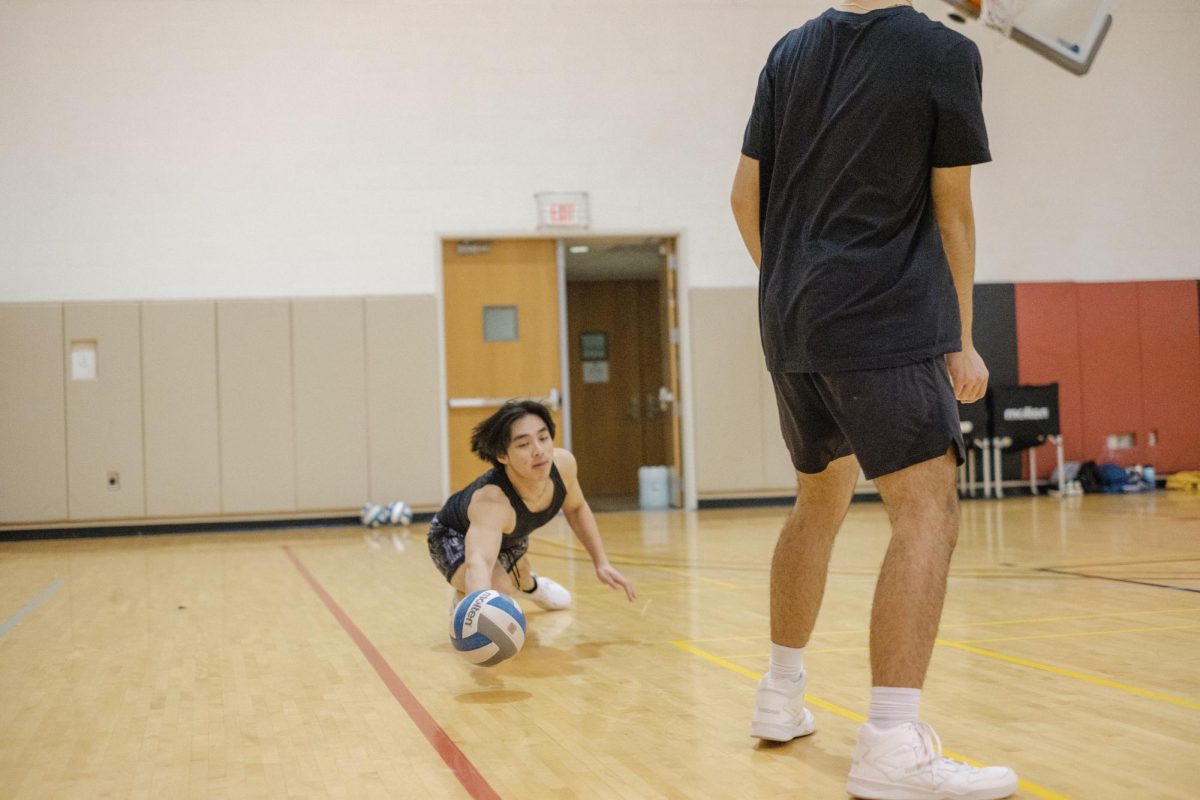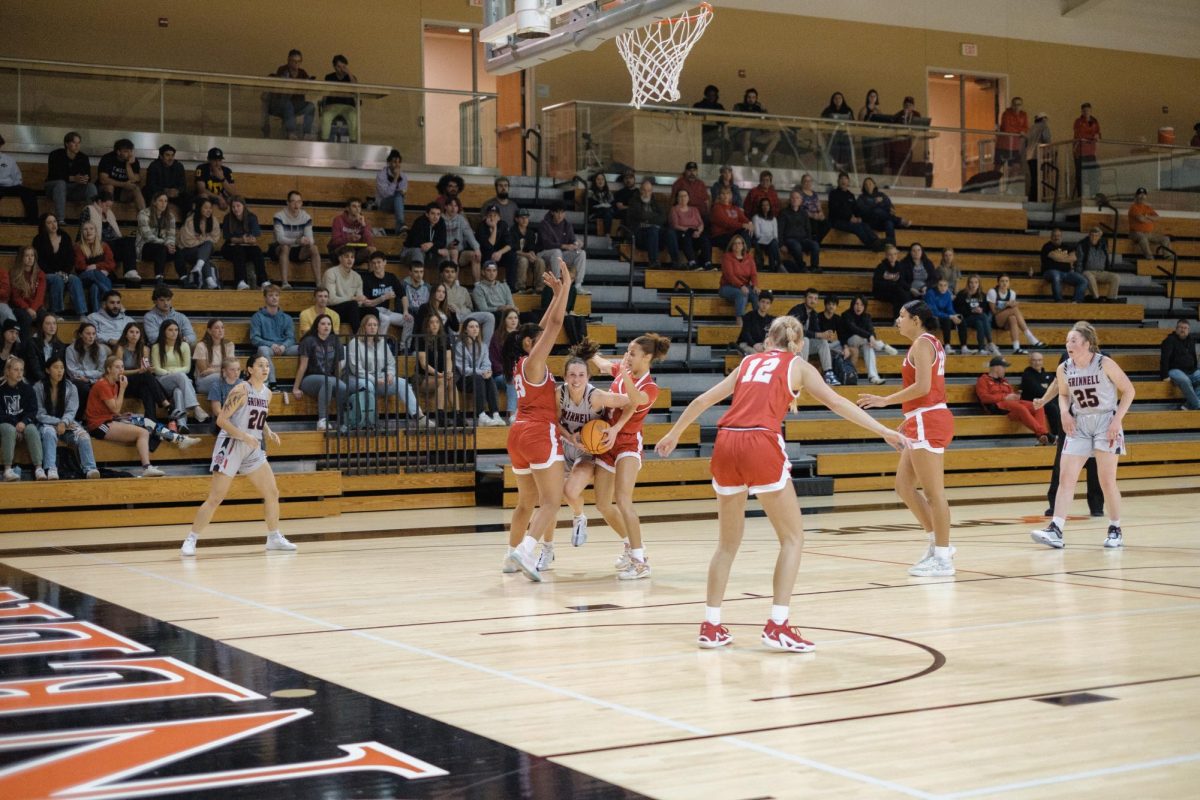By members of “Chaverim: Jewish Student Organization”
After much discussion, we as Grinnell’s Jewish student organization have decided to change our name from “Chalutzim,” a Hebrew translation of the school’s “Pioneers” nickname, to “Chaverim,” (for official purposes, “Chaverim: Jewish Student Organization”) which means “friends” in Hebrew. This new name reflects our desire to create an accessible and welcoming Jewish community and we hope our name will signal to new, prospective and simply curious students the presence of a thriving Jewish community here at Grinnell College.
Much of our decision to change our name came from our deep discomfort with the violent history of settler colonialism that the name “Pioneers” represents. While we appreciated the positive connotations of discovery and innovation that many people associate with “pioneers,” we chose to search for a name that could celebrate the positive characteristics of our organization without perpetuating celebrations of settler colonialism. The process to reject the translation of “Pioneers” as our name and to choose a new one took many months of research and conversation, but all that effort is worth a name that our community can stand behind with pride and joy.
Through our name change discussions, we began to realize that many of us had been making the daily choice to either consciously ignore or tacitly accept the violence that the name “Pioneers” represents in the context of Grinnell: the history of settler colonial dispossession and genocide of the Sauk, Meskwaki and Ioway peoples on this land, as well as a whitewashing of that same history. In rejecting the name “Chalutzim” (Pioneers) we hope to deepen our discussion of our relationship to this land, and to the Sauk, Meskwaki and Ioway peoples, rather than erasing our connection to the history of settler colonialism and its impacts today.
However, it is not enough for just one group within our institution to change our name: we are calling for the members of the Grinnell College community to begin the process of reckoning with the meaning behind our current nickname, the “Pioneers.” This has been an ongoing conversation, and in our own name change process Chaverim was tremendously inspired by the petition which alumni and current students circulated in the beginning of the 2020-2021 school year, urging Grinnell “to remove the ‘Pioneers’ nickname and replace it with one that cannot be construed as celebrating the removal and attempted extermination of Indigenous peoples.”
We call on Dr. Anne Harris and the entire college community to move forward together, from the recognition of the historical and present violence of the name “Pioneers,” to justice-oriented action. As the poet Solmaz Sharif said, “Let it matter what we call a thing.” Let it matter that our college’s current name celebrates settler colonialism, creating a hostile environment for any indigenous students, faculty and staff who may have considered coming to Grinnell. Considering the powerful negative impact our current name can have, let it matter that we have the power to choose a name that makes each of us feel like we belong here.
We are so grateful for the work that is already underway, from conversations on land acknowledgements to the decision to stop using the name “Pioneers” in marketing materials. We look forward to building on this work together and participating in these conversations as a whole community. While this endeavor will take time and change aspects of Grinnell College, we truly believe that change done with our whole community of current students, faculty, staff, and alumni can lead to a more just future for all of us.
What would it look like at Grinnell College for us to engage deeply with the role our institution plays within settler colonialism? This may feel like a huge question, but there are already examples of Grinnellians working together to reckon with colonialism in the context of Grinnell: some recent examples include this website and toolkit from Professor Caleb Elfenbein’s Center for Humanities Fall 2019 course, “Decolonizing the Curriculum” and a past organization, Crecimos Unidos, which created mentoring and tutoring partnerships with students at the Meskwaki Settlement School. For some initial historical resources by a fellow Grinnellian, see Henry Brannan’s S&B article on the topic (with some great books linked at the end such as The Indians of Iowa by Lance M. Foster), and their larger project “A Buried History of Dispossession: How Grinnell College Came to Hold the Deed to the Lands of the Meskwaki, Sauk, and Báxoǰe Nations.”
Additionally, the name change petition mentioned above has over 700 signatures of current students and alumni, as well as suggestions for new names. This resource makes it easier to imagine a process through which we could acknowledge our institution’s role in perpetuating settler colonial violence, and find ways of redressing that harm. Imagine: through a series of convocations on the history of the Sauk, Meskwaki and Ioway peoples, our community could learn about the histories and presents of the peoples on whose land we reside, and how they were dispossessed of that land. A broad group of students, people involved in athletics, faculty, staff, and alumni could form a taskforce to lead listening sessions for our community. In these sessions we could eventually highlight a name, or several, that fit our college’s character—let’s say the “squirrels” (already our unofficial mascot), “prairie grasses,” and “visionaries,” for example — and then host several convocations on each name. After a vote, we would have a new name which we could stand by with pride. This process could even extend beyond the name and explore potential partnerships between Grinnell and the Meskwaki Settlement, supporting such initiatives as scholarships for cohorts of students from the Meskwaki Settlement school (an idea which Henry Brannan discusses in their project). While this scenario represents just some of the possible ways to proceed, it shows us that this change is really possible and could be incredibly generative for our own college community, while opening up paths of relation and engagement with other communities as well.
To Dr. Harris and to all students, faculty and staff, let’s build all the groundwork that has been laid for us into a possibility for real change at Grinnell College. This will only happen if we are all leaders in this effort. We have to show up to these conversations, and if they don’t exist yet, start them: in D-Hall, in the classroom, in community sessions, in your department meetings, or in break rooms– wherever you are, that is where you can make change.
There are so many paths to engagement and growth for our community, the only thing to do is to start. We hope that Chaverim’s decision to reject the name “Pioneers” can inspire others within our community to call for a sincere and action-oriented reckoning with the violence of colonization as it exists in the past and present at Grinnell College. Overall, we call for a process based in transparency and humility, with clear ways for students, faculty and staff to get involved, receive updates, and share their opinions. If you have thoughts regarding a name change for Grinnell, or would like to participate in this process, please reach out to Grinnell’s chief diversity officer, Dr. Schvalla R. Rivera, at riverasc@grinnell.edu.
Signed, Chaverim board members present and future:
Batyah Selis ’21
Sarah Licht ’22
Elizabeth Collinger ’21
Nicholas Raphaelson ’21
Nora Paul ’22
Libby Kerensky ’24
Edo Biluar ’23
Marisa Goffman ’24




























































